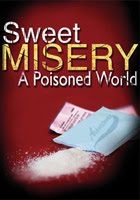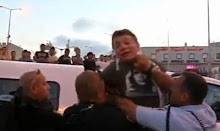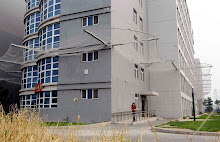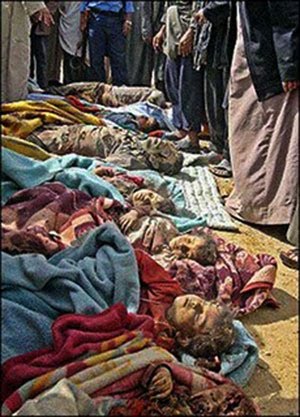Reuters
Jul (Reuters) - Western security agencies were most likely behind the killing of an Iranian scientist in an operation that underlines the myriad complications in the conflict over Iran's nuclear program, analysts say.
Darioush Rezaie, 35, a university lecturer, was shot dead by gunmen in eastern Tehran Saturday, the third murder of a scientist since 2009. One was killed in a car bomb, the second by a device detonated remotely.
The Iranian government's responses to past such incidents have appeared confused but the Rezaie case has surpassed previous levels, with the authorities speaking in strikingly different voices from the outset.
"Assassinations will continue to be a tool used in this covert war. While it's impossible to tell with certainty whether Rezaie was an active nuclear scientist, his death appears to be another episode in that war," said London-based analyst Ghanem Nuseibeh, founder of Cornerstone Global Associates.
"The Iranian narrative has been confused about Rezaie's work and this adds credence to the speculation that he has been involved in the nuclear program."
When news of the shooting first came out, semi-official news agency Mehr published information on Rezaie's background which indicated involvement in Iranian nuclear activities that have brought international sanctions on the Tehran government.
"We have not found any trace of foreign spy services involvement in Rezaie's assassination case yet," state television quoted him as saying.
Other bodies involved in investigations would normally include the Revolutionary Guards and the office of Supreme Leader Ali Khamenei, and possibly others.
Analysts believe that Iran might wish to play down the accusations of blame as the incident is embarrassing for its security agencies and could become an issue in domestic politics.
"I suspect, just based on what's known in the Iranian media reporting, that Rezaie was assassinated because of his relationship to Iran's nuclear program," said Afshon Ostovar, an Iran analyst based in Washington.
After the initial confusion, Ostovar said he detected "a PR campaign to both downplay the impact of his death on Iran's nuclear program and to discredit any sense of legitimacy of the assassination."
Several analysts said they believed the killing to have been carried out by U.S. or Israeli agents.
Both countries have said they are prepared to take military action to stop the Islamic Republic becoming a nuclear power. They fear Iran's uranium enrichment program is designed to take Tehran to the point where it can quickly put together atomic weapons if it wanted to, although Tehran insists the program is for peaceful purposes.
A U.S. spokeswoman denied any U.S. involvement.
"It's frequent practice for Tehran to accuse the West for these kinds of incidents, and we hope that Tehran is not planning to use this incident to distract attention from what it needs to do, which is to come back into compliance with international obligations," State Department spokeswoman Victoria Nuland told a press briefing.
Asked about Israel's response to the accusations, Defense Minister Ehud Barak said on Sunday: "It's not responding."
Despite public infighting within the Iranian ruling establishment, which has seen President Mahmoud Ahmadinejad and his supporters fall out of favor with Supreme Leader Ali Khamenei, Western analysts see signs that Iran is pushing ahead with plans to develop the means to develop nuclear warheads.
Last month Iran said it would shift production of higher-grade uranium to an underground bunker and triple output capacity. It also test-fired 14 missiles in one day including some it says can reach Israel and U.S. bases in the region.
IRAN, ISRAEL EYE ARAB SPRING
The killing took place at a time when both Iran and Israel are nervously watching the spate of popular protests that have spread across the Middle East this year.
Some analysts in Iran have even suggested the assassinations could be the work of elements inside the ruling system as a warning to academics and officials who might be tempted to leak information to foreign governments.
The Arab protests have so far they have failed to provoke a return of Iranian opposition to the streets after massive demonstrations over the reelection of Ahmadinejad in 2009.
But the stakes are high for Tehran in the conflict between Tehran's ally Syria and opposition protesters. The fall of Syrian leader Bashar al-Assad could reignite the Iranian street.
For Israeli leaders the fall of ally Hosni Mubarak in Egypt in February was a blow that raised the possibility of Arab openings to Iran. That spurred debate in Israel on whether to attempt a strike this year on Iran's nuclear facilities.
But Assad's troubles could result in the loss of an ally for Iran, which Israel would see as a strategic victory.
Analysts say the protests may have diverted some Western political attention from the Iranian nuclear question.
"To many, the Iranian issue is not on the front pages because of the revolt sweeping the region," said Theodore Karasik, a Dubai-based security analyst. "But it's clear Western intelligence is penetrating Iran and hunting down individuals involved supposedly in the nuclear program."
(Additional reporting by Parisa Hafezi and Dan Williams; Editing by Angus MacSwan)
Jul (Reuters) - Western security agencies were most likely behind the killing of an Iranian scientist in an operation that underlines the myriad complications in the conflict over Iran's nuclear program, analysts say.
Darioush Rezaie, 35, a university lecturer, was shot dead by gunmen in eastern Tehran Saturday, the third murder of a scientist since 2009. One was killed in a car bomb, the second by a device detonated remotely.
The Iranian government's responses to past such incidents have appeared confused but the Rezaie case has surpassed previous levels, with the authorities speaking in strikingly different voices from the outset.
"Assassinations will continue to be a tool used in this covert war. While it's impossible to tell with certainty whether Rezaie was an active nuclear scientist, his death appears to be another episode in that war," said London-based analyst Ghanem Nuseibeh, founder of Cornerstone Global Associates.
"The Iranian narrative has been confused about Rezaie's work and this adds credence to the speculation that he has been involved in the nuclear program."
When news of the shooting first came out, semi-official news agency Mehr published information on Rezaie's background which indicated involvement in Iranian nuclear activities that have brought international sanctions on the Tehran government.
"We have not found any trace of foreign spy services involvement in Rezaie's assassination case yet," state television quoted him as saying.
Other bodies involved in investigations would normally include the Revolutionary Guards and the office of Supreme Leader Ali Khamenei, and possibly others.
Analysts believe that Iran might wish to play down the accusations of blame as the incident is embarrassing for its security agencies and could become an issue in domestic politics.
"I suspect, just based on what's known in the Iranian media reporting, that Rezaie was assassinated because of his relationship to Iran's nuclear program," said Afshon Ostovar, an Iran analyst based in Washington.
After the initial confusion, Ostovar said he detected "a PR campaign to both downplay the impact of his death on Iran's nuclear program and to discredit any sense of legitimacy of the assassination."
Several analysts said they believed the killing to have been carried out by U.S. or Israeli agents.
Both countries have said they are prepared to take military action to stop the Islamic Republic becoming a nuclear power. They fear Iran's uranium enrichment program is designed to take Tehran to the point where it can quickly put together atomic weapons if it wanted to, although Tehran insists the program is for peaceful purposes.
A U.S. spokeswoman denied any U.S. involvement.
"It's frequent practice for Tehran to accuse the West for these kinds of incidents, and we hope that Tehran is not planning to use this incident to distract attention from what it needs to do, which is to come back into compliance with international obligations," State Department spokeswoman Victoria Nuland told a press briefing.
Asked about Israel's response to the accusations, Defense Minister Ehud Barak said on Sunday: "It's not responding."
Despite public infighting within the Iranian ruling establishment, which has seen President Mahmoud Ahmadinejad and his supporters fall out of favor with Supreme Leader Ali Khamenei, Western analysts see signs that Iran is pushing ahead with plans to develop the means to develop nuclear warheads.
Last month Iran said it would shift production of higher-grade uranium to an underground bunker and triple output capacity. It also test-fired 14 missiles in one day including some it says can reach Israel and U.S. bases in the region.
IRAN, ISRAEL EYE ARAB SPRING
The killing took place at a time when both Iran and Israel are nervously watching the spate of popular protests that have spread across the Middle East this year.
Some analysts in Iran have even suggested the assassinations could be the work of elements inside the ruling system as a warning to academics and officials who might be tempted to leak information to foreign governments.
The Arab protests have so far they have failed to provoke a return of Iranian opposition to the streets after massive demonstrations over the reelection of Ahmadinejad in 2009.
But the stakes are high for Tehran in the conflict between Tehran's ally Syria and opposition protesters. The fall of Syrian leader Bashar al-Assad could reignite the Iranian street.
For Israeli leaders the fall of ally Hosni Mubarak in Egypt in February was a blow that raised the possibility of Arab openings to Iran. That spurred debate in Israel on whether to attempt a strike this year on Iran's nuclear facilities.
But Assad's troubles could result in the loss of an ally for Iran, which Israel would see as a strategic victory.
Analysts say the protests may have diverted some Western political attention from the Iranian nuclear question.
"To many, the Iranian issue is not on the front pages because of the revolt sweeping the region," said Theodore Karasik, a Dubai-based security analyst. "But it's clear Western intelligence is penetrating Iran and hunting down individuals involved supposedly in the nuclear program."
(Additional reporting by Parisa Hafezi and Dan Williams; Editing by Angus MacSwan)































No comments:
Post a Comment